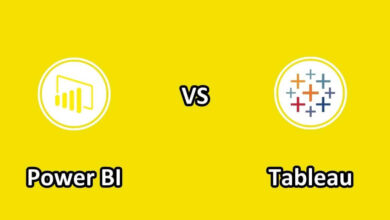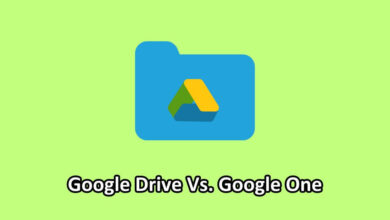Facebook vs Twitter : A Side-by-Side Comparison [With Table]
Welcome to the ultimate showdown of social media: Facebook vs Twitter! In this enthralling blog, we’ll dissect the profound disparities between these two digital behemoths, armed with a comprehensive table and insightful concepts.
Facebook, a global sensation founded by Mark Zuckerberg in 2004, has redefined how we connect and communicate, captivating billions worldwide with its user-friendly interface and diverse features. On the other hand, Twitter, the dynamic microblogging platform led by Jack Dorsey since 2006 and now under the ownership of Elon Musk, continues to capture hearts with concise 280-character tweets, real-time information, and vibrant public discourse. It remains the go-to platform for news, trends, and connections.
Facebook Vs Twitter (Comparison Chart)
| Facebook is a social media platform founded by Mark Zuckerberg and his college roommates in 2004. | Twitter is a microblogging and social networking platform launched in 2006. It was created by Jack Dorsey, Biz Stone, and Evan Williams. |
| Facebook has a massive user base of 2.7 billion active users worldwide, making it the largest social media platform. | Twitter, while still substantial with 330 million active users, has a smaller user base compared to Facebook. |
| Facebook offers a wide range of content formats, allowing users to post photos, videos, text updates, links, and more. | Twitter has more limited content options. Users can post text-based tweets, along with images and videos, but it lacks the diverse content formats available on Facebook. |
| With its vast user base and the algorithm-driven News Feed, Facebook provides higher engagement potential. | Twitter’s engagement potential is relatively lower due to its shorter lifespan of posts, also known as tweets, and its comparatively smaller user base. |
| Facebook takes security seriously, but its privacy policies have faced criticism in the past. However, efforts have been made to enhance user privacy. | Twitter is often perceived as having a more privacy-centric approach. |
| Facebook offers extensive advertising opportunities for businesses. | Twitter’s advertising options are more limited compared to Facebook’s. |
| Facebook employs a complex algorithm to curate the content displayed in users’ News Feeds. | Twitter, unlike Facebook, does not use an algorithm for its main feed. Instead, tweets appear in chronological order, allowing users to see the most recent posts from accounts they follow without any algorithmic intervention. |
What is Facebook?
Facebook is a social networking site that allows users to connect with friends and family all over the world. With Facebook, you can share photos, videos, and updates with your network of friends. You can also join groups, and Pages to connect with people who share your interests.
Also, it allows businesses to create Pages, where they can promote their products and services.
Facebook also offers tools to help you stay connected and informed, such as News Feed, Instant Messenger, and more.
What is Twitter?
Twitter is a social media platform that allows users to send and receive short messages called tweets. Tweets can be up to 280 characters long and can include photos, videos, and links. Twitter is similar to other social media platforms like Facebook and Instagram, but it has some unique features that set it apart. For example, Twitter is known for its real-time updates, which allow users to see what’s happening in the world as it happens.
Mainly, it is designed for news and conversations. It can be used for personal, professional, or business reasons. It’s a great way to stay up-to-date on the latest news, trends, and updates from around the world. People can follow accounts that interest them and join conversations with other users in their network.
Benefits of Using Facebook
- Connect with Friends: Facebook makes it easy to connect with friends, family, and colleagues. You can share updates, photos, videos, messages, and everything else that matters to you.
- Stay Informed: News feeds help keep you up-to-date on what’s happening in the world. Whether it’s news from your hometown or around the world, Facebook gives you access to more information than ever before.
- Share Ideas and Experiences: With Facebook, you can share your thoughts and views on a variety of topics with people from all over the world. It’s a great way to start meaningful conversations and make new connections.
- Promote Business: Businesses of all sizes use Facebook to promote their products and services as well as interact directly with consumers. This can lead to new customers and increased sales revenue for your company.
- Stay Entertained: With games, videos, and other content available on Facebook, there’s always something fun to do when you have a few spare minutes.
Benefits of Using Twitter
- News and Information: Twitter is the perfect platform for quickly and easily searching, sharing, and staying updated on news and information. It’s also an excellent way to stay up-to-date with what’s happening in the world around you.
- Engagement: Twitter is a great platform for engaging with others. With its open communication capabilities, users can follow accounts, share content, comment on posts, like messages, and even start conversations with people they don’t know.
- Networking: Thanks to its vast network of users from all walks of life, Twitter provides ample opportunities for networking with potential customers, partners or colleagues.
- Connections: Through Twitter users are able to connect with like-minded individuals from around the globe who share similar interests or goals as them; this makes it easy to build relationships and networks online that would never be possible in real life.
Key Differences Between Facebook and Twitter
- User Base and Demographics Comparison: The number of active users on Facebook is 2.7 billion, while the number of active users on Twitter is 330 million. When it comes to demographics, Facebook has more older users than Twitter
- Engagement Potential: When it comes to engagement potential, Facebook is much better because of its larger user base and longer-lasting posts on News Feeds which give your content a better chance of being seen by more people over time. Twitter’s engagement potential is lower due to its shorter lifespan of posts and smaller user base.
- Security and Privacy: Both platforms have high levels of security but Twitter has stronger privacy policies in place that help protect user data from malicious actors or other unauthorized access attempts.
- Advertising Opportunities: Facebook provides great advertising opportunities for businesses as it offers an easy way to target relevant audiences with various ad formats such as ads in the News Feeds or sidebars. On the other hand, Twitter’s ads are more limited and focused on promoted tweets, accounts, or trends.
- Content Sharing: Facebook allows users to share content from other sources whereas Twitter only allows users to retweet content from other accounts.
Which Platform is Better for Your Business
The choice of platform will come down to what suits your business best. To help guide you, we’ve put together a short explanation of Facebook and Twitter.
Looking at the above table, it’s clear that Twitter is better for real-time news and announcements while Facebook is better for fostering engagement and building relationships. If you’re looking to increase brand awareness or drive traffic to your website, Facebook would be the better choice. For customer service or if you want to start a conversation, Twitter would be better suited.
Both platforms have their pros and cons, but ultimately it will come down to what will work best for your business or other goals.
Who Should Use Each Platform?
There is no one-size-fits-all answer to this question, as the best platform for you will depend on your specific needs and goals. However, in general, Facebook is better for building relationships with current and potential customers, while Twitter is better for sharing news and promoting your Insights/information.
If you’re mostly interested in connecting with people you know, or potential customers in your local area, Facebook is probably the best platform for you. With over 2 billion active users, it’s easy to find and connect with people on Facebook. You can also use Facebook’s powerful targeting options to make sure your posts are seen by the people who are most likely to be interested in them.
On the other hand, if you’re more interested in promoting or sharing news and information with a wider audience, Twitter is a better option. With over 320 million active users, Twitter gives you access to a huge potential audience. And because tweets are easily shareable, it’s a great way to get your message out there.
The Future of Twitter and Facebook
As social media platforms grow and evolve, so do the ways in which we use them. In the past few years, we’ve seen a shift in the way people are using Twitter and Facebook. Whereas Twitter was once the go-to platform for sharing news and events in real-time, Facebook has now become the preferred platform for many users. This is likely due to Facebook’s algorithm that prioritizes content from friends and family over brands and businesses.
Looking to the future, it’s likely that Twitter will continue to be used as a platform for sharing news and events as they happen. However, Facebook will probably maintain its position as the most popular social networking site overall. This is due to the fact that Facebook offers a more well-rounded experience, with features like groups, events, and Pages that appeal to a wider range of users.
Final Thoughts
When it comes to social media, there are two clear leaders: Facebook and Twitter. But which one is better? It depends on what you’re looking for.
If you want a platform where you can share long-form content, photos, and updates about your life with friends and family, Facebook is the obvious choice. If you’re more interested in following news stories, engaging in brief conversations with people all over the world, and sharing short snippets of text, Twitter is probably a better fit.
Both platforms have their pros and cons, but ultimately it’s up to you to decide which one you prefer.



